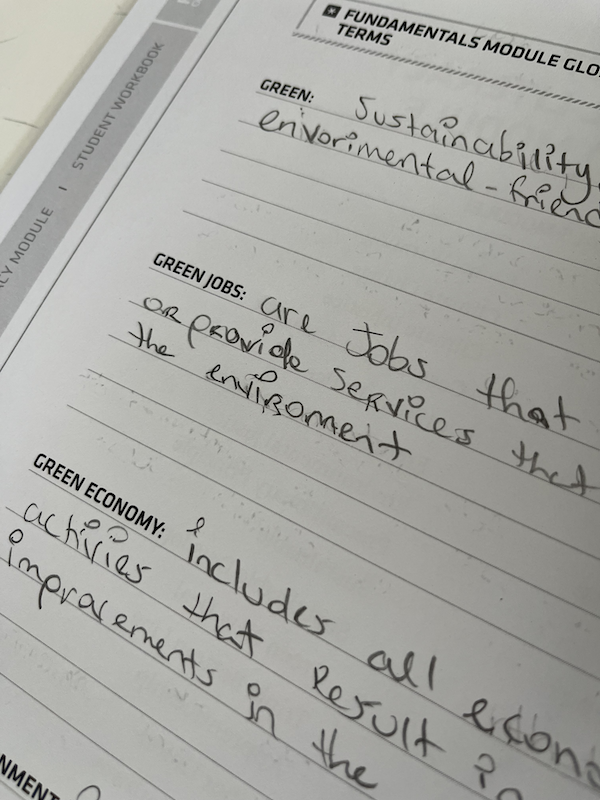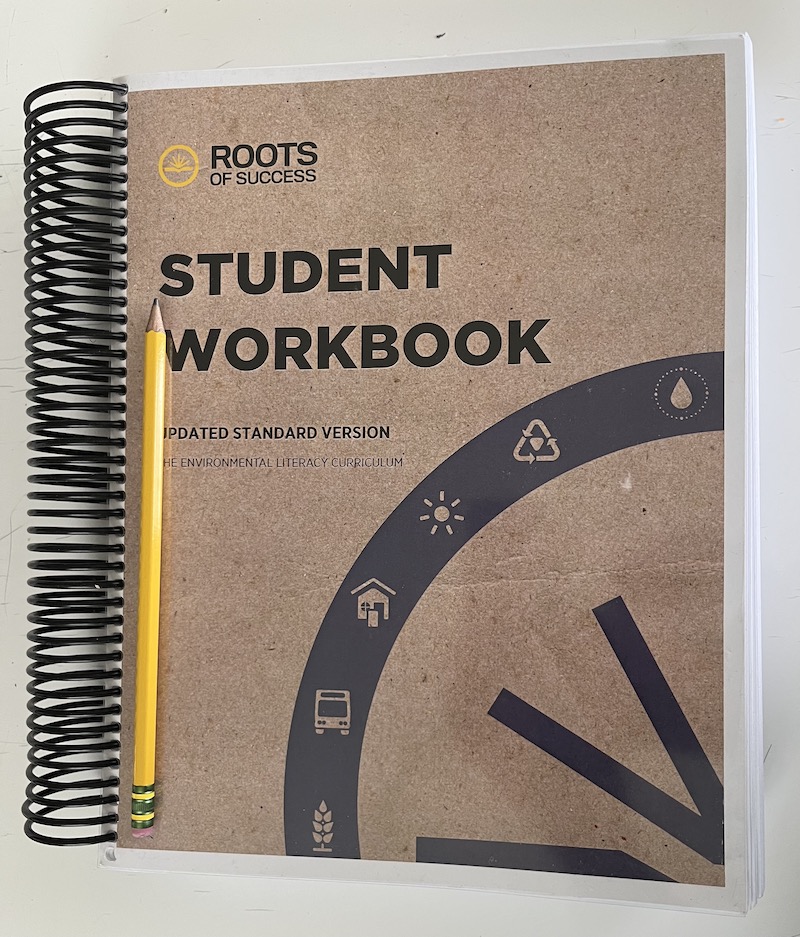Benevolence Farm is always looking for new ways to achieve its mission of cultivating leadership, promoting sustainable livelihoods, and reaping structural change with individuals impacted by the criminal legal system in North Carolina. That’s why we have begun a new environmental education and job training program called Roots of Success.

Roots of Success (ROS) is an environmental literacy and professional development course aimed at preparing participants for climate resilient jobs in their community. The course is taught in prisons, jails, youth prisons, job training programs, schools, youth programs, and reentry programs like Benevolence Farm!
I was hired in April to be the Employment Coach, a new position at the farm. I work with residents on site during the workday, independently through employment focused check ins, and in the ROS classroom. My goal is to support residents in not only finding a steady income after they leave our program, but also finding a career that they are passionate about and excited to go to every day! ROS helps residents learn about careers in a variety of sectors that contribute towards a better environment and community.
Benevolence Farm focuses on sustainability in all aspects of life: in the ways we work, utilize the earth’s resources, and interact with our community. We aim to create immediate solutions to barriers in our life, and work on preventative, systemic changes to prevent further complications. ROS addresses this holistic view by providing students with tangible skills to aid with their job search, as well as a higher level understanding of how poverty, climate change, and systems of oppression intersect.
ROS has ten modules that focus on a variety of topics such as water, waste, transportation, energy, building, and health, food, and agriculture. There are also modules that aim at applying concepts and hard facts we discuss through community organizing, leadership, and entrepreneurship.

In our first session, we all made vision boards about what we hope to gain from the course. Some participants were unsure and were simply excited to learn. Others had a more direct goal to grow their environmental career portfolio. I was particularly excited about a resident interested in healthcare who talked about how climate change impacts the wellbeing of us all, but particularly marginalized groups that are disproportionately impacted by pollution. Much like the prison industrial complex, climate change’s tendrils reach beyond the immediate images conjured in our minds. By looking at these systems through a personal lens, we are able to find a niche where we can enact real change that is enjoyable and empowering.
By the end of the 10-week course, residents will receive a certificate from the U.S. Department of Labor, and hopefully have a deeper understanding of how their interests can be a strength in creating a more equitable, cleaner future.
Brett Rapkin-Citrenbaum (she/her/hers) is the Benevolence Farm Employment Coach. She can be reached at brett at benevolencefarm.org